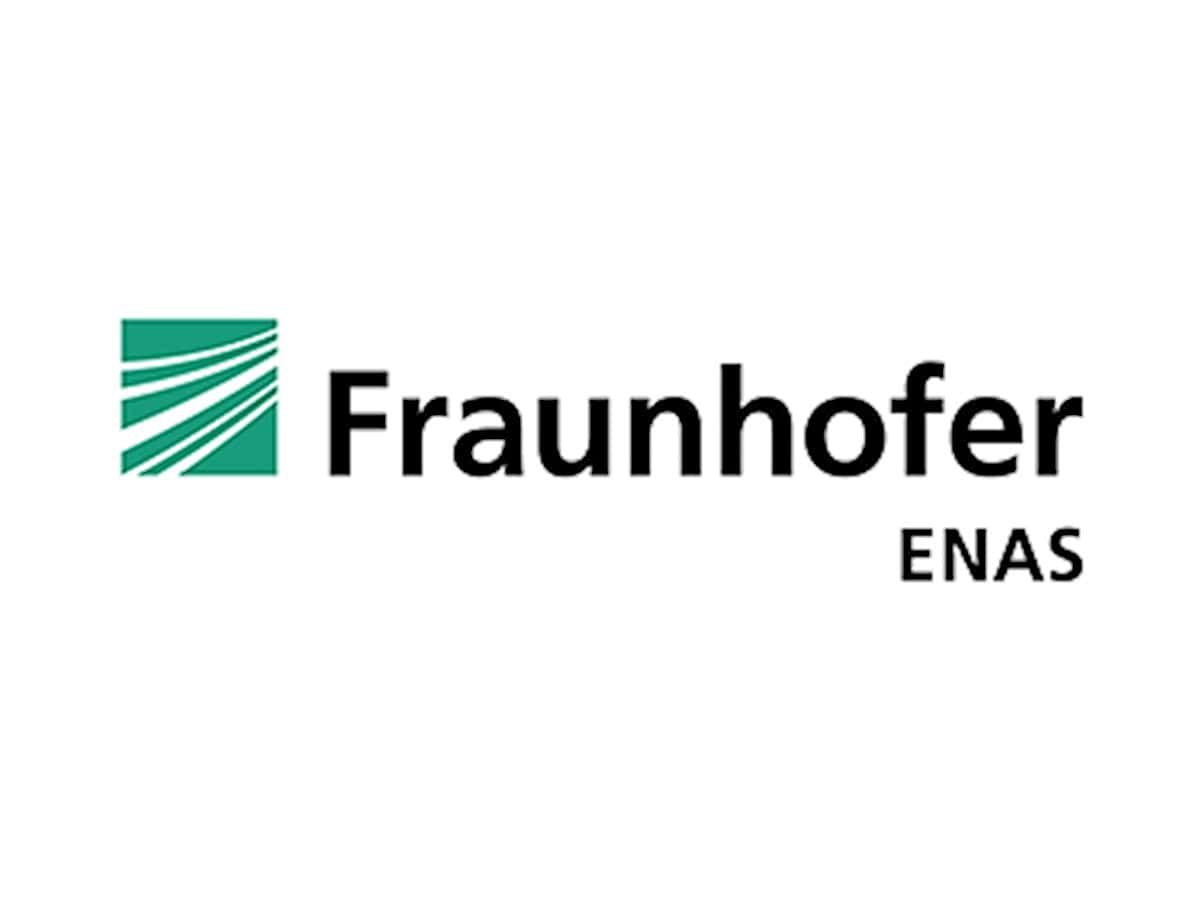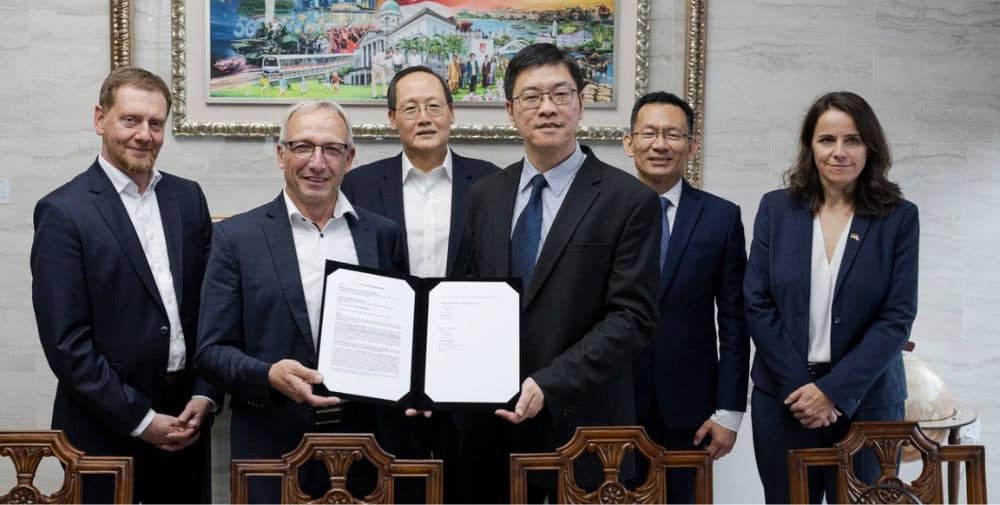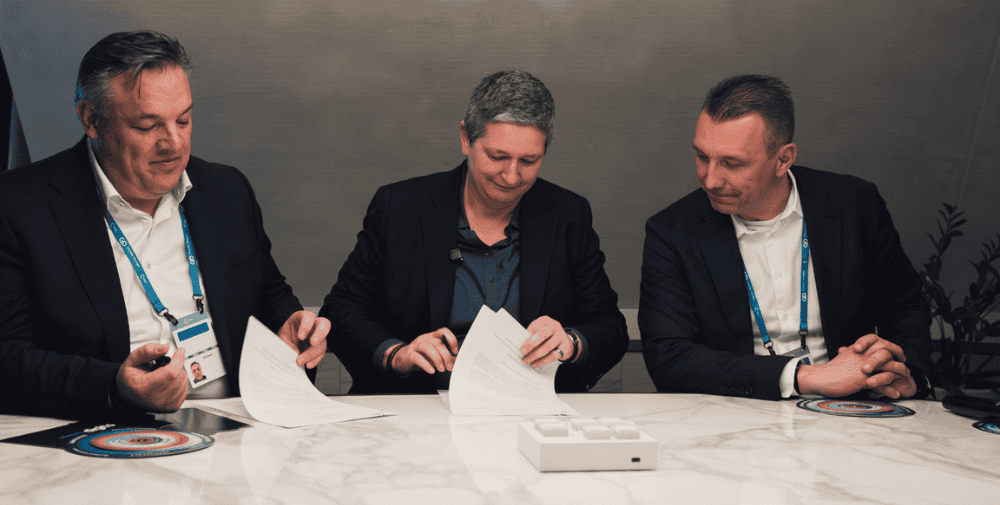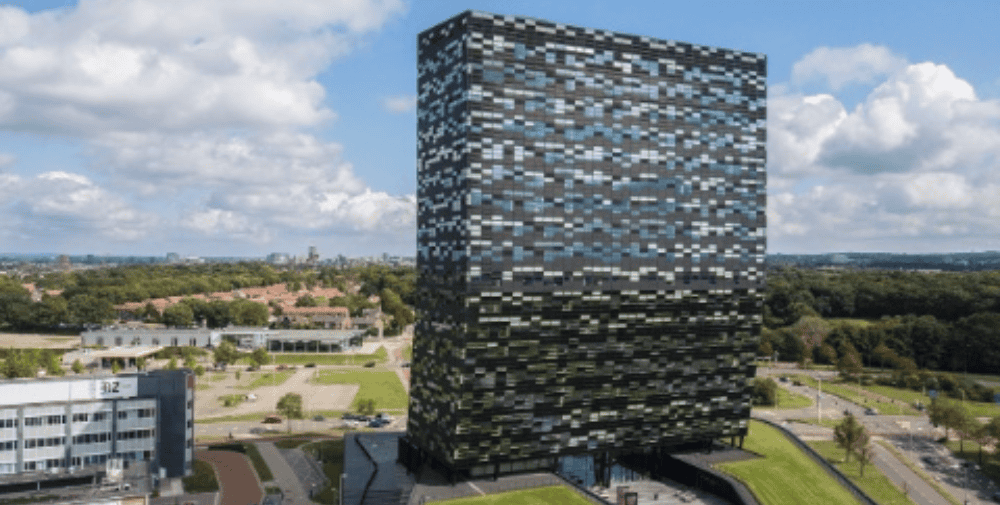
For several years, Fraunhofer ENAS has been a strategic partner of Fraunhofer Singapore Research Limited, a subsidiary of the Fraunhofer-Gesellschaft in Asia, with strong ties to Singapore as a center of innovation and technology, thus strengthening the international presence of the Fraunhofer-Gesellschaft in Asia. Fraunhofer and Nanyang Technological University (NTU) in Singapore have been working closely together for more than 25 years and jointly operate a local interdisciplinary research center. This cooperation opens up numerous opportunities to advance joint research and development activities in the Asian region and to further intensify them in the future.
Cooperation with globally significant research centers and universities
The signing of two agreements with the two research institutions A*STAR and NUS is intended to further expand these transnational relationships in Southeast Asia and lay the foundations for sustainable bilateral cooperation. The agreements cover the areas of microelectronics, systems integration and applied research.
A*STAR is Singapore’s leading organization for research and development and a catalyst for technological innovation in the Asian region. Both NUS and NTU are among the world’s leading universities: Both universities regularly occupy top positions in international university rankings (QS World University Rankings) and are among the “Top 15 Universities” worldwide. They are regarded as driving forces for innovation and technology development in Southeast Asia.
Leap in development for the semiconductor industry through cooperation with A*STAR
In order to pool their expertise, Fraunhofer and A*STAR signed a cooperation agreement in October 2025. It forms the basis for close technological collaboration in the field of microelectronics and the testing and reliability assessment of semiconductor products. The research and development activities of both Fraunhofer ENAS and the Institute of Microelectronics (IME), which is part of A*STAR, in these key areas of expertise for the chip industry complement each other perfectly and set the course for accelerating research processes and technological progress.
The start of the cooperation marks the joint development of highly efficient power electronics components based on silicon carbide semiconductors (SiC). Due to their long service life and high thermal stability, these are ideal for electromobility, data center infrastructures and system solutions in the field of renewable energies.
In addition, the partnership aims to strengthen knowledge transfer through a holistic cooperation approach. This will include international exchange programmes for highly qualified specialists as well as stronger scientific networking between the two partner organizations and the integration of innovative companies from Saxony into the Singaporean innovation ecosystem.
New computing speeds and architectures thanks to NUS partnership
Another milestone in strengthening transnational relations in Southeast Asia was achieved with the signing of a Memorandum of Understanding (MoU) between Fraunhofer ENAS and NUS. The MoU paves the way for close cooperation in the field of in-memory computing for novel AI solutions and in the validation of quantum communication systems. The aim of the cooperation is to combine the research expertise of the NUS and Fraunhofer ENAS in a practical way and to secure access to leading international research institutions.
“Intensifying our international relations by strengthening our institutional links with globally renowned scientific institutions with proven research expertise such as A*STAR, the NUS and NTU represents an important bridge. It connects Chemnitz as a pacemaker for microtechnological developments, Saxony as a strong center of the European semiconductor industry and Germany as a first-class research location with one of the most dynamic innovation areas in Asia to form an agile and vibrant ecosystem. Our close cooperation with international partners from industry, research and development, both in Asia and in Europe, offers the opportunity to expand this ecosystem in the future by integrating further players and institutions and closely interlinking them. This makes it possible to tap potential for sustainable and globally significant technological developments for the benefit of the economy and society and to promote technology leadership and international competitiveness through global research and knowledge transfer,” explains Prof. Dr. Harald Kuhn, Institute Director of Fraunhofer ENAS, the motivation.
Bridge-building for Chemnitz, Germany and Europe
Minister President Michael Kretschmer sees the signing of the two agreements by Fraunhofer ENAS as a strong signal for the entire semiconductor location of Saxony: “The expansion of economic and scientific relations between leading Saxon institutions such as Fraunhofer ENAS and dynamic partner states in East Asia is a great benefit for the further development of future-relevant key industries. Saxony’s excellence as an innovative location for the semiconductor industry in Europe is thus gaining international appeal with global visibility beyond Singapore and Asia, from which research and industry will benefit equally.”
The Mayor of the City of Chemnitz, Sven Schulze, also sees great potential in the collaborations of Fraunhofer ENAS: “The close ties with Singapore open doors to new opportunities for the city of Chemnitz in the future. They offer a unique opportunity to establish new business relationships in Asia and to promote the recruitment of specialists and young talent at an international level. By helping to shape relevant innovation dynamics, Chemnitz will be sustainably strengthened and can consolidate and further expand its position as an attractive research and business location in the long term.”
About Fraunhofer ENAS
The particular strength of the Fraunhofer Institute for Electronic Nano Systems ENAS lies in the holistic development of “intelligent systems” for various applications. The institute’s research activities range from the development of novel wafer and packaging technologies to the production of electronic components, micro and nano sensors and actuators, as well as the development of system concepts and system integration technologies, including communication interfaces. Using state-of-the-art and AI-supported test and reliability methods, Fraunhofer ENAS transfers the developed solutions into practical use. The institute accompanies customer projects from the idea to the design, technology development or implementation based on existing technologies to the tested prototype.
– – – – – –
Further links
👉 www.enas.fraunhofer.de
Photo: Pawel Sosnowski/Saxon State Chancellery




